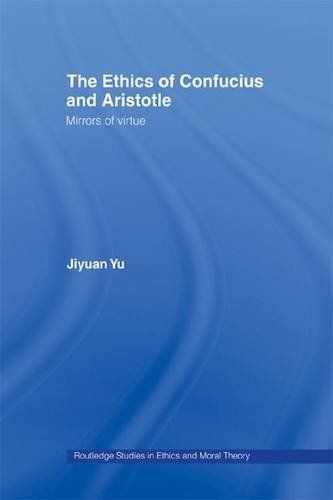
The Ethics of Confucius and Aristotle Mirrors of Virtue
"The emergence of virtue ethics, which might be the most significant development in contemporary ethics, takes Aristotle's ethics as the most important paradigm. Aristotle's ethical thinking, in contrast to modern Western moral philosophy, starts with a reflection on human life as a whole instead of on some moral acts, and focuses on character and virtue instead of on principles and rules. This way of doing ethics is shared by Confucius. First, Confucius seeks to find the human dao, i.e. the way to become a good person. Second, to become a good person, one must cultivate de, that is, a dispositional character (indeed, de has been generally translated as "virtue" in English). Confucius calls this dispositional character ren. Ren has been generally translated as "benevolence" or "humanity," but is also widely referred to as "virtue," "complete virtue," or "cardinal virtue."" "It is in elaborating how one person can become a good person by cultivating ren that Confucius reflects on and discusses issues such as human nature and its fulfillment, the doctrine of the mean, the role of social customs and traditions, self-cultivation and moral education, love, family, virtue politics, moral emotion, moral reasoning, family, and so on. These are also the central themes in Aristotle's theory of virtue. To a great extent, Aristotle's ethics is taken as the model in contemporary virtue ethics precisely because these important ethical concerns have been left out or at least marginalized in dominant modern moral theories."--Jacket.